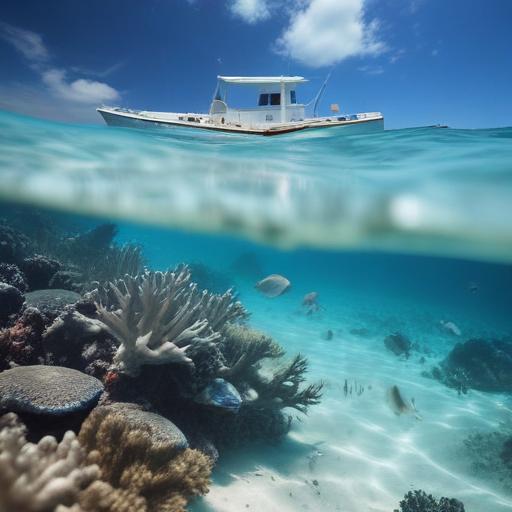The fishing industry in Tuvalu, once a vital source of sustenance and income, is facing significant challenges due to climate change and shifting tuna populations. Fishermen in Tuvalu, such as Kauaka Petaia and his nephew Ranol Smoliner, have observed a troubling decline in their catches. They managed to catch only eight tuna, a stark contrast to the bountiful catches experienced three decades ago when Petaia’s father taught him the trade. This decline raises concerns about the future availability of tuna, especially as global warming warms ocean waters and drives tuna further away from their traditional habitats.
Tuna has been a cornerstone of Pacific life for centuries, providing both food and revenue for local economies. However, as global demand increases, Tuvalu and other Pacific Island nations have been selling fishing licenses to international companies, giving them access to their rich fishing zones. Unfortunately, climate change complicates this relationship; rising ocean temperatures are not only driving tuna away but also threatening the livelihoods of coastal communities. Tuvalu’s Prime Minister, Feleti Teo, has pointed out the irony of the ocean, a source of sustenance, now posing threats to their existence, especially with rising sea levels and more severe weather patterns.
Recent studies suggest that by 2050, Tuvalu could see a significant reduction—up to 25%—in its tuna population due to climate-related shifts. This potential loss raises dire implications for the country’s economy, which relies heavily on fishing revenues. Over the past five years, Tuvalu has seen a 40% decrease in these crucial earnings, which significantly impacts the nation’s budget.
Efforts are currently being implemented to tackle these challenges. Tuvalu and 13 neighboring countries are collaborating to monitor changes in tuna populations and seek compensation for fish stocks that may migrate to high seas due to climate change. They have also received over $100 million from the Green Climate Fund to assist in adaptation initiatives. Part of this funding is directed towards creating fish aggregation devices—mechanisms that can help local fishermen attract more tuna closer to shore.
Aside from the tuna crisis, Tuvalu faces the existential threat of rising sea levels. As it stands, the atoll nation is only about 1.5 meters above sea level, experiencing ocean levels that rise at a rate faster than the global average. The ongoing reclamation projects aim to create new land for habitation, while constitutional amendments are underway to safeguard Tuvalu’s statehood, even in the event that its territory diminishes.
Some hopeful initiatives include Australia’s introduction of special visas for Tuvaluan citizens, with over 80% of the population applying for relocation amid the impending climate challenges. Moreover, the cultural preservation efforts in the metaverse reflect a creative approach to safeguarding Tuvalu’s heritage.
The intersection of climate change and tuna fishing in Tuvalu represents a critical issue that extends beyond mere economics; it encapsulates a fight for survival for a people deeply connected to the ocean. As such challenges grow, the resilience and adaptability of Tuvalu and its people remain central to navigating these unprecedented waters.
